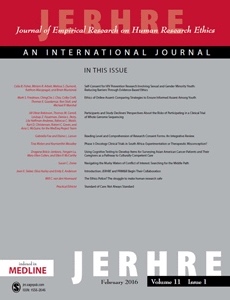 The Ethical and Social Implications of Rhetorical Reform in Genomic Medicine
The Ethical and Social Implications of Rhetorical Reform in Genomic Medicine
Eric Juengst, Michelle L. McGowan, Jennifer R. Fishman, Richard A. Settersten Jr.
Published September 2016 in The Hastings Center Report
Since the late 1980s, the human genetics and genomics research community has been promising to usher in a “new paradigm for health care”—one that uses molecular profiling to identify human genetic variants implicated in multifactorial health risks. After the completion of the Human Genome Project in 2003, a wide range of stakeholders became committed to this “paradigm shift,” creating a confluence of investment, advocacy, and enthusiasm that bears all the marks of a “scientific/intellectual social movement” within biomedicine. Proponents of this movement usually offer four ways in which their approach to medical diagnosis and health care improves upon current practices, arguing that it is more “personalized,” “predictive,” “preventive,” and “participatory” than the medical status quo. Initially, it was personalization that seemed to best sum up the movement’s appeal. By 2012, however, powerful opinion leaders were abandoning “personalized medicine” in favor of a new label: “precision medicine.” The new label received a decisive seal of approval when, in January 2015, President Obama unveiled plans for a national “precision medicine initiative” to promote the development and use of genomic tools in health care.
